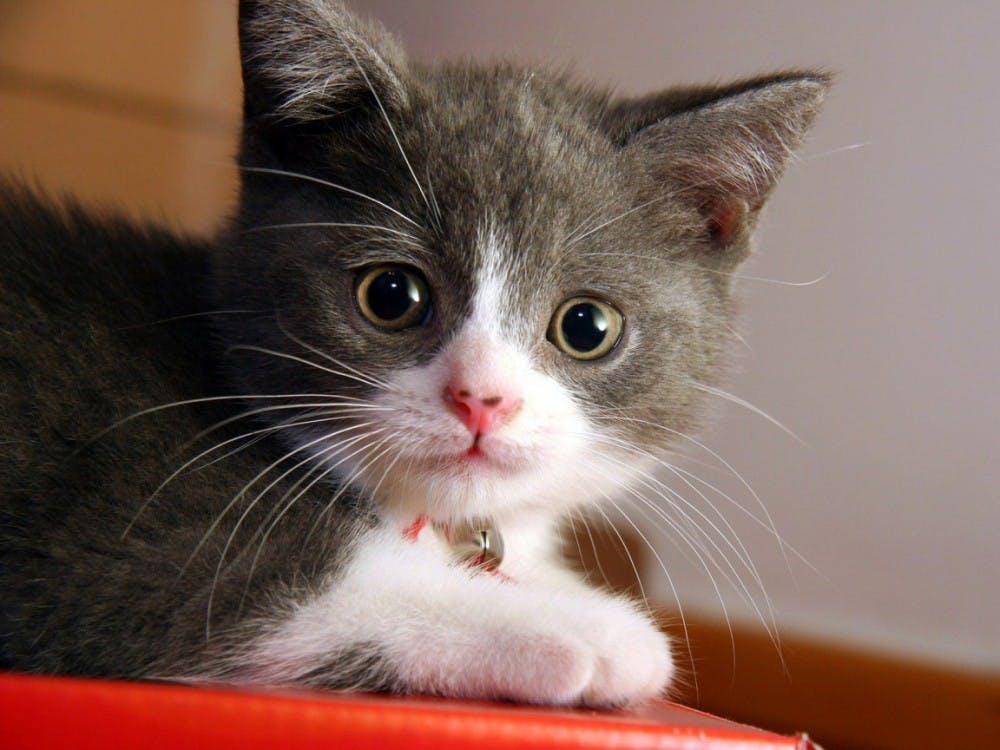For years now, controversy has surrounded the emotionally-charged subject of endotracheal intubation in cats, which takes place as a routine training procedure in the Medical School. The University’s medical school currently uses both cats and virtual infants to train medical residents to intubate infants.
Intubation, according to the National Institutes of Health website, is a procedure involving the insertion of a tube into the windpipe through the mouth or nose, allowing the doctor to open an obstructed airway and deliver oxygen or medicine.
Whether individuals are for or against continuing to use cats to practice intubation, both sides of the issue are armed with data and conviction.
Dr. John Pippin of the Physician’s Committee for Responsible Medicine, an organization that promotes ethical research practices, said Medical School officials’ dedication to the practice is attributable to an “entrenched tradition.”
“Resistance at U.Va. seems to stem from someone at the top who prefers to use animals, whether it is what they are used to or what they think is best,” Pippin said. “As of today, to our knowledge, of 209 pediatric programs in the U.S. and Canada, 205 do not use animals to practice endotracheal intubation.”
Proponents in the University medical system argue that virtual infant simulators do not always properly recreate the intubation process. Former University spokesperson Carol Wood wrote in a 2011 letter to the Associated Press that “[the University has] carefully determined that in the case of infants weighing less than four pounds, no current simulator provides adequate training in tracheal intubation.”
Pippin, however, said not only do arguments such as these fail to account for the moral problem presented by the use of cats, they also are misleading.
“Number one, it’s cruel,” Pippin said. “And number two, it is not the best training method. There are purpose-designed simulators specifically designed to replace animals. If there were some important anatomical difference, 98 percent of residency programs would not have opted to use virtual infants.”
The reluctance of University Medical System officials to comment on the matter without a lengthy process of administrative approval demonstrates the touchy nature of the subject for the University Health System, which is virtually alone amongst elite medical institutions in its refusal to cease the use animals for this procedure.
But the attending veterinarian in the procedure, Dr. Sanford Feldman, was willing to grant me an interview, and even offered to introduce me to the animals, which suggests University officials are fairly confident of the well-being of the cats: Alley, Fiddle and Kiki. It seems, however, that the moral aspect of the issue may have overridden any potential practical benefits for this year’s class of incoming medical residents.
“We have obtained public records from the University showing that in the June 2012 session for incoming pediatrics residents, they did not use cats to practice endotracheal intubation,” Pippin said. “Incoming residents themselves voted not to participate in this procedure, and instead chose to use virtual infants. This indicates a couple things: that the practice itself has been optional for some time now, and most importantly that the residents themselves opted not to participate.”
If the numbers do not speak for the necessity of the removal of this practice, then the multitude of well-trained doctors out of the animal-free universities should be convincing. This year’s class of incoming residents seem to agree — and indeed, Pippin said he thinks this year’s sudden development may precipitate an overall reduction of the practice in coming years.
“If change is going to occur, it has to come from the University itself,” Pippin said.







